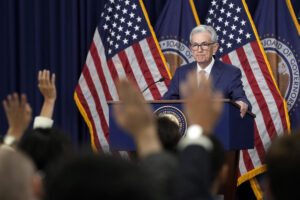When it comes to the economy, all eyes are on the Federal Reserve and its projected interest rate cuts. With the latest data pointing to a cooling in consumer spending and a rise in the unemployment rate, economists are keeping a close watch on the state of the economy.
Despite worries about the economy running too hot, recent inflation data has been more promising than expected. The Consumer Price Index (CPI) increased at its slowest pace since July 2022, signaling a potential decline in inflation. This, combined with a slower increase in the Personal Consumption Expenditures (PCE) index, has led to speculation about the Fed’s next moves.
According to Neil Dutta from Renaissance Macro, it’s time for the Fed to consider cutting interest rates to support both price stability and maximum employment. The momentum behind core inflation is softening, and the trade-offs with the labor market are becoming more challenging. This sentiment is echoed by Federal Reserve Chair Jerome Powell, who acknowledged a gradual cooling in the labor market.
However, concerns arise when looking at future trends in the labor market. If the job openings rate declines further, it could signal a rise in the unemployment rate, potentially leading to a recession. This is a scenario economists like Dutta and the team at Goldman Sachs are keen on avoiding.
Although some strains are evident in the labor market, experts like Matthew Luzzetti from Deutsche Bank remain optimistic about the overall economic outlook. While risks exist, the current trends seem to point more towards a slowdown in consumer spending rather than a significant drop-off that would warrant immediate rate cuts.
From an investor’s perspective, the stock market has reacted positively to the current Fed outlook, with record closes seen in the S&P 500 and Nasdaq Composite. However, the economy’s “fraying” edges remain a point of interest for investors, particularly as corporate executives express caution during earnings calls.
The worry now is that the Fed may wait too late to act on inflation, potentially causing more harm to an already delicate economy. With excess savings decreasing and credit card delinquencies rising, small businesses and lower-income households could bear the brunt of delayed rate cuts.
In the end, the balance of risks for the Fed lies in making timely decisions that support economic growth without causing unnecessary harm. As we navigate the complex economic landscape, staying informed and prepared for potential changes is key to success in the financial markets.
Stay tuned for the latest updates and insights on all things finance and business right here at Extreme Investor Network. Your source for cutting-edge financial analysis and expert advice.

